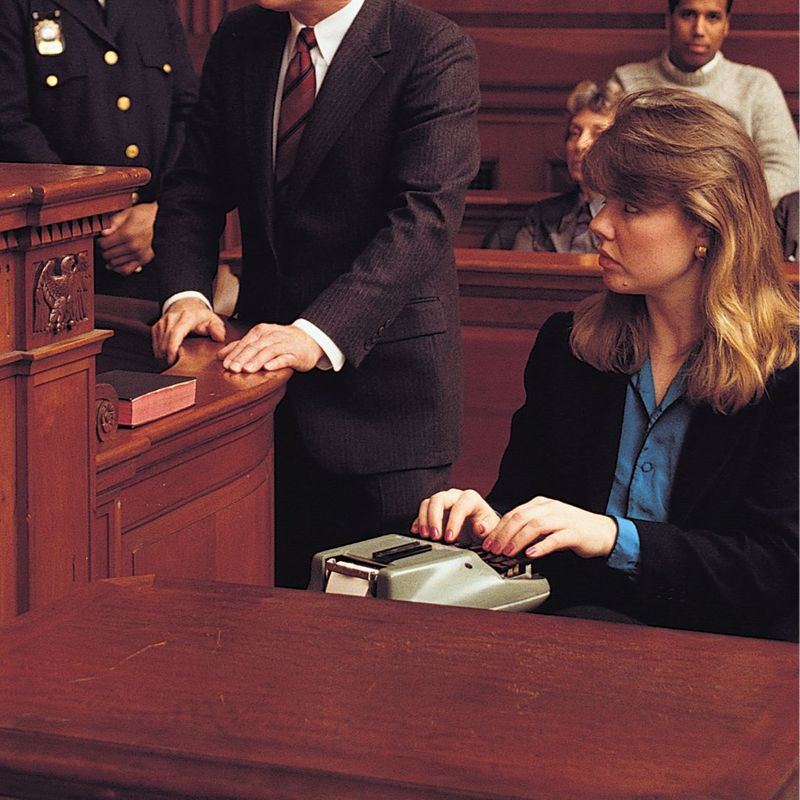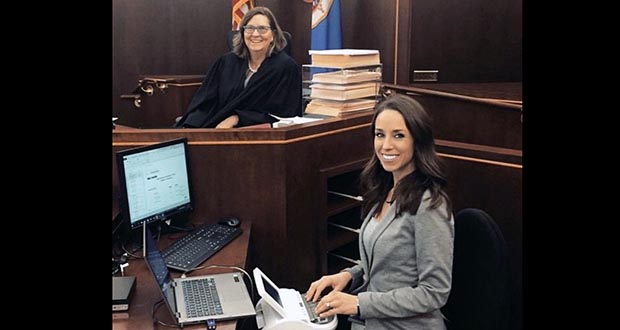What sets durham court reporting apart from national court reporting services
The Importance of Court Reporting in Ensuring Accurate Legal Process
Court reporting is an essential component of the lawful system. It gives a impartial and accurate document of court activities. This paperwork is necessary for allures and lawful research study, ensuring that every spoken word is captured accurately. The honesty of lawful procedures depends heavily on these transcripts. However, the role of technology and developing techniques questions about the future of court reporting and its effect on justice. What adjustments exist in advance?
The Role of Court Reporters in the Legal System
Court press reporters play a vital duty in the legal system by offering impartial and precise transcripts of process. Their work assurances that court room dialogues, witness testimonies, and legal disagreements are faithfully documented, offering as an official record for future recommendation. This documentation is critical for allures, lawful research, and keeping the stability of judicial processes. Stenotype reporter are trained experts proficient in stenography and numerous recording technologies, allowing them to capture talked words with accuracy. They should have a comprehensive understanding of lawful terminology and court room protocols, assuring that their records satisfy the requirements called for by the judicial system. Furthermore, they might offer real-time transcription solutions, allowing lawyers and courts to access info instantaneously during proceedings. By fulfilling these duties, stenotype reporter assist in openness, accountability, and the fair management of justice, thereby enhancing the fundamental concepts of the lawful system.
Making Sure Precision in Transcription
Precision in transcription is paramount for maintaining the integrity of lawful procedures. Court reporters carefully capture every word talked during hearings, tests, and depositions, guaranteeing that the official record mirrors the true dialogue and exchanges that occur. This precision is essential, as also small mistakes can bring about substantial misconceptions or misinterpretations of the legislation.
To achieve this level of accuracy, stenotype reporter use numerous techniques, including active listening and the use of specialized shorthand methods. Continuous training and knowledge with lawful terms additionally improve their capacity to create dependable transcripts.
Furthermore, the verification process is essential; press reporters often assess their records for prospective inconsistencies before final submission. This persistance not only upholds the quality of legal documents but additionally supports the judicial procedure, allowing judges and attorneys to reference accurate records when choosing. Eventually, accurate transcription promotes depend on in the legal system and warranties that justice is served.
The Impact of Technology on Court Reporting
As technology proceeds to advance, its impact on court reporting has actually come to be increasingly significant. Digital recording systems and speech acknowledgment software have actually transformed traditional methods, offering brand-new devices for catching talked dialogue. These innovations boost effectiveness and access, making it possible for quicker transcription and real-time reporting. In addition, cloud-based platforms assist in smooth sharing of records, improving cooperation among lawyers.

Eventually, while innovation boosts the rate and ease of access of court reporting, it highlights the requirement for human oversight to keep the top quality and accuracy essential for legal proceedings. As the area remains to adapt, the integration of technology will play a critical function fit the future of court reporting.

The Significance of Privacy and Stability
Discretion and honesty are basic concepts that underpin the technique of court reporting in lawful process (durham court reporting). Court reporters are turned over with delicate info, requiring them to maintain discernment and safeguard the personal privacy of all parties included. This confidentiality fosters a relying on atmosphere where plaintiffs and witnesses can talk freely, making certain that the legal process is fair and just
Integrity is similarly vital; court press reporters have to provide impartial and accurate records, offering as the authorities record internet of the proceedings. Any kind of gap in honesty can bring about false impressions, possibly affecting case end results and weakening the judicial system.
Future Trends in Court Reporting
The landscape of court reporting is evolving in action to technical improvements and the changing demands of the legal profession. Arising trends consist of the combination of fabricated intelligence and real-time transcription solutions, which boost efficiency and accuracy. Court reporters are increasingly making use of electronic devices, such as cloud-based platforms, allowing for smooth collaboration amongst legal groups and much easier access to transcripts.
In addition, the rise of remote court process has triggered the development of specialized training for reporters in digital environments. click site This change not just adapts to the needs of a globalized legal landscape however additionally addresses challenges presented by geographical barriers.
Additionally, the focus on ease of access is driving technologies in transcription styles, making certain that legal files deal with varied audiences. On the whole, the future of court reporting is characterized by a mix of conventional abilities and modern-day innovation, positioning reporters as important gamers in the lawful procedure.
Frequently Asked Concerns
What Credentials Are Called For to Come To Be a Stenotype Reporter?
To become a court reporter, individuals commonly require a secondary school diploma, specialized training in court reporting, proficiency in shorthand or voice writing, and accreditation or licensing, depending upon the jurisdiction and certain task demands. - durham court reporting
Exactly How Do Court Reporters Maintain Their Abilities Gradually?
Court reporters preserve their skills with time via continuous education, method, and engagement with specialist organizations. They frequently participate in workshops, make use of innovative modern technology, and take part in certification programs to improve their efficiency and adjust to developing standards.
What Difficulties Do Court Reporters Face in Their Career?
Stenotype reporter come across countless obstacles, including handling high-pressure environments, adapting to varied accents and dialects, maintaining technical efficiency, guaranteeing precision under limited deadlines, and taking care of mentally charged testaments that may influence emphasis and performance.
Are Court Reporters Associated With Other Lawful Settings Besides Courts?
Stenotype reporter are without a doubt included in numerous legal setups beyond courts, consisting of depositions, adjudication hearings, and administrative process. Their proficiency warranties precise records in these environments, adding to the clarity and dependability of legal documents.
Exactly How Do Stenotype Reporter Manage Stressful Situations Throughout Process?

Court reporters take care of stressful circumstances by preserving emphasis, using effective time management skills, and utilizing their training to continue to be calm. They commonly exercise deep breathing and employ techniques to decrease distractions, guaranteeing precise paperwork under pressure.
Court reporting is a vital part of the lawful system. Court press reporters play an essential role in the legal system by offering unbiased and exact transcripts of proceedings. Eventually, while innovation enhances the speed and ease of access of court reporting, it highlights the requirement for human oversight to preserve the high quality and accuracy crucial for lawful process. Discretion and honesty are essential concepts that underpin the method of court reporting in lawful process. Court press reporters are without a doubt entailed in numerous lawful setups beyond courtrooms, consisting of depositions, mediation hearings, and management process.